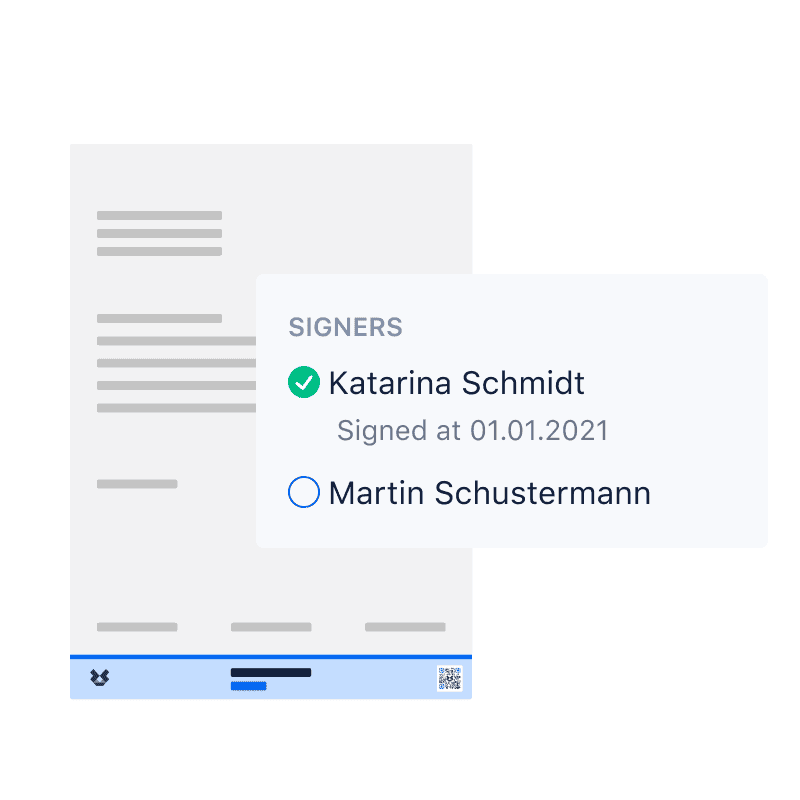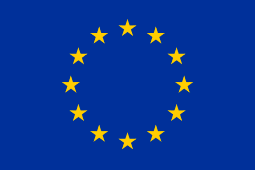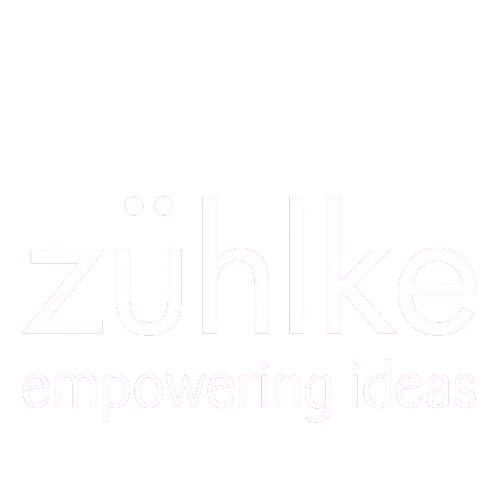Background: How is the legal validity of digital signatures regulated?

Compared to handwritten signatures, eSignatures are the better choice for every company that wants to save time and money and optimize its customer experience. Of course, this requires that an electronic signature is accepted as legally valid by the legislature.
This is regulated differently in each country or economic area and, in addition, often depends on the use case. In some cases, special requirements are also placed on an electronic signature for certain applications so that it is legally valid.
Fortunately, new regulations have been issued worldwide in recent years that clearly regulate this, so that digital signatures are now accepted as fully legally valid in most countries.
Examples of these framework regulations include eIDAS in the EU, ZertES in Switzerland, or the ESIGN or UETA regulations in the US.
Simple or Qualified?
In reality, terms such as “electronic signature,” “digital signature” or “eSignature” are merely generic terms for different signature standards with different technical requirements.
The so-called Qualified Electronic Signature, or QES for short, deserves special attention. In this case, the identity of all signers is securely verified via a separate identification procedure, for example, via video identification services.
Legislators can stipulate a QES in applications where there is a formal requirement for it to be legally valid.
This contrasts with the so-called Simple Electronic Signature (SES). In this case, identification is based only on the e-mail address, which has been adopted as a secure alternative in certain areas such as B2B business.
If no formal requirement is stipulated by law, an SES is generally accepted as a legally valid alternative to a handwritten signature, provided that a framework regulation such as eIDAS or ZertES recognizes electronic signatures in principle.
However, in cases without formal requirements where the SES is legally valid, Certifaction’s PES is always the better choice. It combines the low price of SES with the secure identification of signers similar to a QES.


Case study: rental contracts
Let’s look at rental contracts in Germany and Switzerland as a concrete example. In principle, rental agreements can be legally signed in both countries, but different formal requirements apply.
In Germany, for example, an open-ended lease with constant rent can be signed without any formal requirements, i.e. with an SES. However, a QES is required for a fixed-term lease and/or a graduated rent.
In Switzerland, on the other hand, all rental agreements can be signed digitally without a formal requirement, i.e. with an SES.
Learn more in our article on the electronic signing of rental agreements.
Global overview
Compared to outdated handwritten signatures, eSignatures have become the better choice for any organization wishing to save time and money and optimize their customer experience. Yet, eSigning remains as good as its legal weight and it’s important to understand the legal framework behind it.
A common denominator of eSignature regulations worldwide is that eSignatures (just as handwritten ones) need to fulfill two main requirements: they need to establish the authenticity of the signatures and the integrity of the underlying document.
Below, we’ll have a closer look at the specific regulations for:
(Please do click on their link to directly jump to their section)
Switzerland
 |
The legal validity of eSignatures
|
| Overview |
In Switzerland, all types of eSignatures are legally valid for most documents (freedom of form), unless there is a specific requirement by law to use a Qualified Electronic Signature (QES). eSignatures have been legally recognized in Switzerland since 2003, and their use is covered in the Federal Law on Electronic Signatures (ZertES) and the Swiss Code of Obligations (CO). Under Swiss law, contracts are generally free of form requirements – meaning that contracts are valid if legally competent parties reach an agreement – verbally, handwritten, or otherwise (art. 11 sec. 1 CO). |
| Applicable laws |
Switzerland has a tiered eSignature law that generally differentiates signature strengths in terms of signature authenticity and document integrity: Additional references to the general legal validity of eSignatures in Switzerland can be found in the Swiss Code of Obligations: |
| Case law |
Swiss courts have addressed the use of electronic signatures repeatedly. Below is an example of a decision by the Swiss Federal Court. |
| Main legal takeaways |
Electronic signature laws in Switzerland allow eSignatures to be used for any kind of document, if there are no form requirements (freedom of form). Only if there are form requirements, then a qualified eSignature (QES) is mandatory. Good to know: The vast majority of contracts can be concluded without any form requirements – and, thus, without a QES – under Swiss law. |
Europe
  |
The legal validity of eSignatures
|
| Overview | In the European Union, eSignatures are generally legally valid and cannot be denied admission in court solely on the grounds of not being handwritten.
eSignatures in the European Union are regulated in the Electronic Identification Authentication and Trust Services (eIDAS), which passed in 2016. It was established in EU Regulation 910/2014 of 23 July 2014 on electronic identification and repeales 1999/93/EC from 13 December 1999. The eIDAS established a consistent framework for legally valid eSignatures across all EU member countries. This regulation, in its Chapter 3 “Trust Services” and under Section 4 “Electronic Signatures,” governs the use of eSignatures in the whole European Union. |
| Applicable law | The European Union has a tiered eSignature regulation that generally differentiates signature strengths in terms of signature authenticity and document integrity |
| Main legal takeaways | As regulated in the eIDAS, eSignatures are generally legally valid and court-admissible across all member countries of the European Union.
In addition, a QES is legally recognized as being equivalent to a handwritten signature. But the regulations also state that eSignatures can’t be held inadmissible in court simply for failing to meet the standards of a QES. Good to know: The vast majority of contracts can be concluded without any form requirements (that would require a QES), under European eSignature law. |
United Kingdom
 |
The legal validity of eSignatures
|
| Overview |
In the United Kingdom, eSignatures are generally legally valid and cannot be denied admission in court solely on the grounds of not being handwritten. eSignatures in the United Kingdom are largely regulated in the Electronic Identification and Trust Services for Electronic Transactions Regulations (UK eIDAS) of 2016 and the amendment following the EU exit in 2019. In addition, the Electronic Communications Act 2000 (ECA 2000) and the Electronic Signature Regulations (ESR 2002) have provided a statutory and technical framework for the admissibility of electronic signatures in the UK. |
| Applicable laws |
The United Kingdom has a tiered eSignature regulation that generally differentiates signature strengths in terms of signature authenticity and document integrity
|
| Main legal takeaways |
As regulated in the UK eIDAS, eSignatures are generally legally valid and court-admissible. The vast majority of contracts can be concluded without any form requirements (that would require a QES), under UK eIDAS law. Good to know: Although the UK eIDAS supervisory body has no EU eIDAS regulatory obligations, it continues to work closely with other EU supervisory authorities. |
United States
 |
The legal validity of eSignatures
|
| Overview |
In the United States, eSignatures are generally legally valid and no contract, signature, or record can be denied legal impact just because it is in electronic format. eSignatures are legally recognized and provided for in the United States with the Electronic Signatures in Global and National Commerce Act (ESIGN), signed in 2000, and state and territory versions of the Uniform Electronic Transactions Act (UETA), in 1999. This legislation specifically identified the legitimacy of eSignatures (assuming contract participants agree to use electronic documents and eSigning) and that eSignatures carry the same legal weight and have legal parity with traditional handwritten (wet) signatures. |
| Applicable laws |
The United States has minimalist eSignature laws that are technology-neutral and where an eSignature (not matter the underlying signature strength) generally holds the same legal weight as a handwritten signature. |
| Main legal takeaways |
Under both the ESIGN Act and UETA, eSignatures are given the same evidentiary weight as handwritten signatures and no contract, signature, or record can be denied legal impact just because it is in electronic format. |
China
The legal validity of eSignatures
|
|
| Overview |
In the People’s Republic of China (“PRC”), eSignatures have been legal since 2004, with the passage of the Electronic Signature Law (ESL). The ESL then received significant revisions in both 2015 and 2019. The PRC General Rules of Civil Law has stated that a civil legal act may be conducted in written, oral or other forms (freedom of form) – unless otherwise specified. Such form requirements generally do not exist in private commercial life, but only when dealing with PRC governmental authorities, personal relations, and public utility services. And according to the PRC Contract Law, “written from” refers to any form that can show the described content in a visible way, including electronic data. eSignatures are generally legally equal to handwritten signatures if they can be classified as “reliable.” For this, the eSignature has to be linked to the signatory and under their control, it can’t be altered afterward, and all alterations need to be detectable. |
| Applicable laws |
The PCR defines an eSignature as electronic data that is contained to the electronically signed document in a way that it demonstrates that the signatory recognizes what is declared in the document. |
| Main legal takeaways |
In China, eSignatures are legally recognized and the law states that an eSignature cannot be deemed invalid simply because it isn’t handwritten (freedom of form). eSignatures can generally legally valid for all civil legal acts and commercial contracts with the notable exceptions of dealing with PRC governmental authorities, personal relations (such as marriage, adoption, succession), and public utility services (such as termination of water supplies, heat supplies, gas supplies). |
DISCLAIMER: The information on this site is for general information purposes only and is not intended to serve as legal advice. Should you have specific legal questions, you should consult with a licensed attorney in your area.











